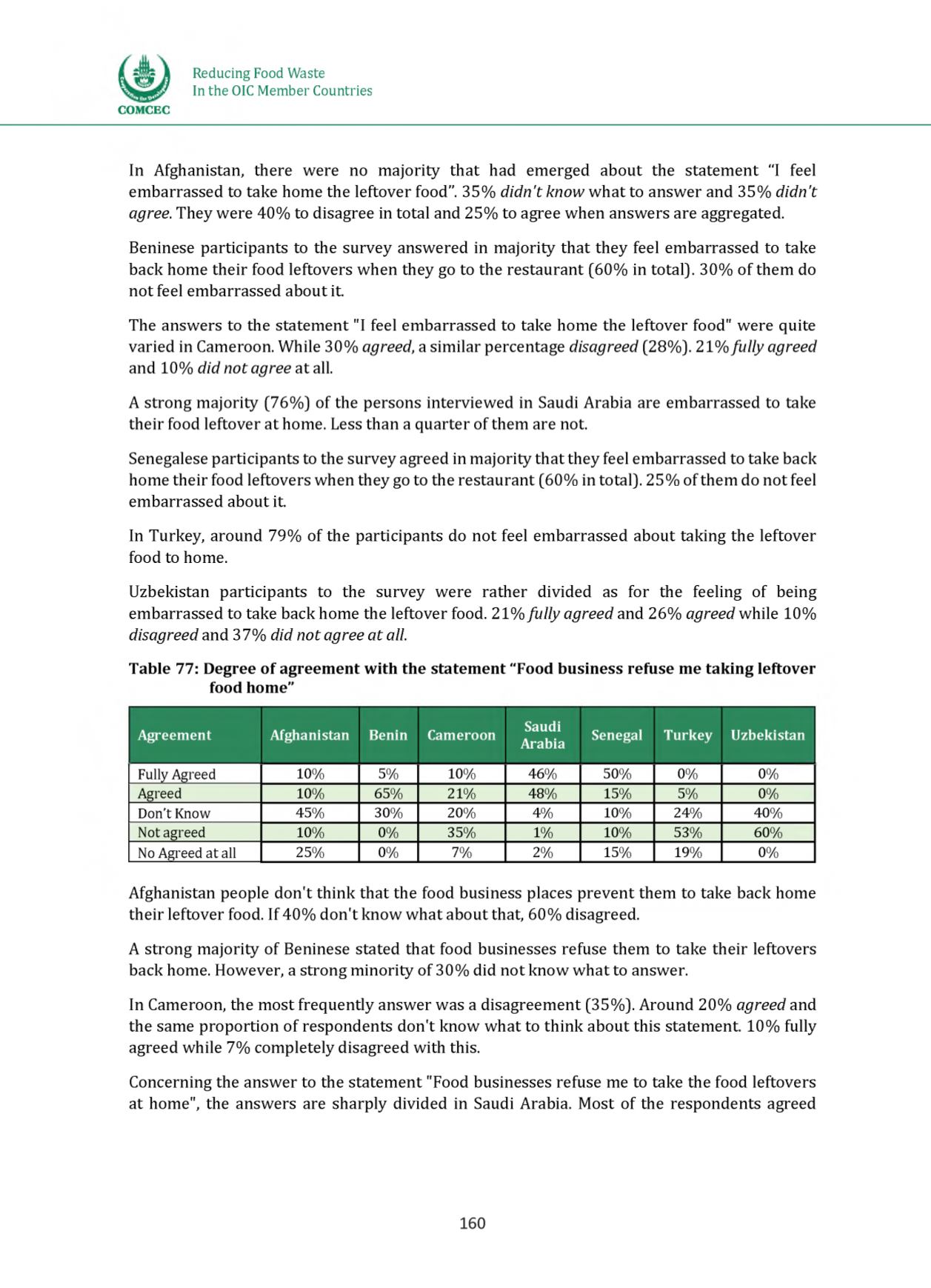

Reducing Food Waste
In the OIC Member Countries
COMCEC
In Afghanistan, there were no m ajority th a t had emerged abou t the statement “I feel
embarrassed to take home the leftover food”. 35%
didn't know
w h a t to answer and 35%
didn't
agree.
They were 40% to disagree in total and 25% to agree when answers are aggregated.
Beninese participants to the survey answered in m ajority tha t they feel embarrassed to take
back home their food leftovers w hen they go to the restaurant (60% in total). 30% o f them do
n o t feel embarrassed abou t it.
The answers to the statement "I feel embarrassed to take home the leftover food" were quite
varied in Cameroon. W h ile 30%
agreed,
a sim ilar percentage
disagreed
(28% ). 21%
fully agreed
and 10%
did not agree
a t all.
A strong m ajority (76% ) of the persons interviewed in Saudi Arabia are embarrassed to take
their food leftover at home. Less than a quarter of them are not.
Senegalese participants to the survey agreed in m ajority th a t they feel embarrassed to take back
home their food leftovers when they go to the restaurant (60% in total). 25% of them do n o t feel
embarrassed abou t it.
In Turkey, a round 79% of the participants do n o t feel embarrassed abou t taking the leftover
food to home.
Uzbekistan participants to the survey were rather divided as for the feeling of being
embarrassed to take back home the leftover food. 21%
fully agreed
and 26%
agreed
while 10%
disagreed
and 37%
did not agree at all.
Table 77: Degree o f ag reem ent w ith the statem en t "Food business refuse me ta k in g leftover
food hom e ”
Agreement
Afghanistan Benin Cameroon Saudi
Arabia Senegal
Turkey Uzbekistan
Fully Agreed
10% 5% 10% 46% 50% 0%
0%
Agreed
10% 65% 21% 48% 15% 5%
0%
Don’t Know
45% 30% 20%
4% 10% 24% 40%
Not agreed
10% 0% 35%
1% 10% 53% 60%
No Agreed at all
25% 0% 7%
2% 15% 19%
0%
A fghanistan people don 't th ink tha t the food business places prevent them to take back home
their leftover food. If 40% do n 't know w h a t abou t that, 60% disagreed.
A strong m ajority of Beninese stated tha t food businesses refuse them to take their leftovers
back home. However, a strong m ino rity of 30% did n o t know w h a t to answer.
In Cameroon, the most frequently answer was a disagreement (35% ). A round 20%
agreed
and
the same p ropo rtion o f respondents don 't know w h a t to th in k abou t this statement. 10% fully
agreed while 7% completely disagreed w ith this.
Concerning the answer to the statement "Food businesses refuse me to take the food leftovers
at home", the answers are sharply divided in Saudi Arabia. M ost of the respondents agreed
160
















